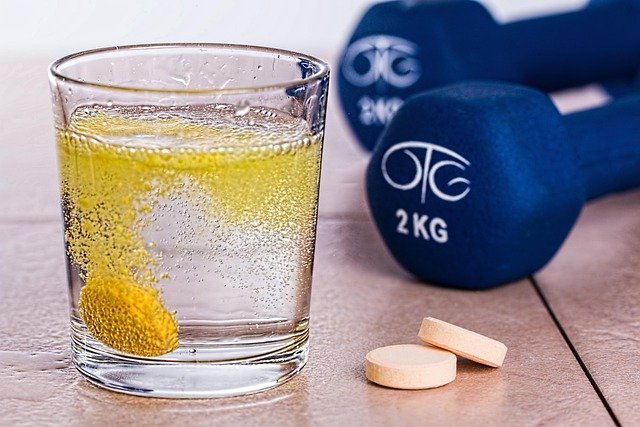The Science of Aging: Understanding and Combating the Signs of Time
As we journey through life, our bodies undergo a natural process of aging. This biological phenomenon affects every aspect of our being, from our internal organs to our outward appearance. While aging is an inevitable part of life, recent advancements in science and medicine have opened up new possibilities for slowing down and even reversing some of its effects. In this article, we'll explore the intricacies of aging, its impact on our skin and overall health, and the various strategies available to maintain wellness as we grow older.

UV radiation from the sun is one of the primary culprits behind premature skin aging, known as photoaging. It damages the DNA in skin cells, leading to the formation of free radicals that break down collagen and elastin fibers. This results in the appearance of fine lines, wrinkles, and age spots. Additionally, repetitive facial expressions, smoking, and poor nutrition can contribute to the development of wrinkles and sagging skin.
How does aging affect overall health and wellness?
Aging impacts more than just our skin; it affects our entire body and its various systems. As we age, our metabolism slows down, making it easier to gain weight and harder to maintain muscle mass. Bone density decreases, increasing the risk of osteoporosis and fractures. Cognitive function may also decline, affecting memory and learning abilities.
Hormonal changes play a significant role in the aging process. For women, menopause brings a sharp decrease in estrogen levels, which can lead to hot flashes, mood swings, and increased risk of heart disease and osteoporosis. Men experience a gradual decline in testosterone, which can affect muscle mass, libido, and energy levels.
Moreover, the immune system becomes less efficient with age, making older adults more susceptible to infections and diseases. The risk of chronic conditions such as heart disease, diabetes, and certain cancers also increases as we grow older.
What are effective anti-aging strategies for skin health?
While we can’t stop the clock, there are numerous ways to slow down the visible signs of aging and maintain healthy, youthful-looking skin:
-
Sun Protection: Wearing broad-spectrum sunscreen daily, even on cloudy days, is crucial for preventing photoaging. Protective clothing and seeking shade during peak sun hours also help shield the skin from harmful UV rays.
-
Skincare Routine: A consistent skincare regimen that includes cleansing, moisturizing, and exfoliating can keep skin healthy and radiant. Products containing retinoids, antioxidants like vitamin C, and hyaluronic acid can help improve skin texture and reduce the appearance of fine lines.
-
Healthy Diet: Consuming a diet rich in antioxidants, omega-3 fatty acids, and vitamins A, C, and E can nourish the skin from within. Foods like berries, leafy greens, fatty fish, and nuts are particularly beneficial for skin health.
-
Hydration: Drinking plenty of water helps maintain skin elasticity and flush out toxins that can accelerate aging.
-
Professional Treatments: Procedures such as chemical peels, microdermabrasion, and laser therapy can address specific skin concerns and promote collagen production.
How can we promote overall wellness as we age?
Maintaining overall health and wellness as we age requires a multifaceted approach:
-
Regular Exercise: Engaging in both aerobic and strength-training exercises helps maintain muscle mass, bone density, and cardiovascular health. It also boosts mood and cognitive function.
-
Balanced Diet: A nutrient-rich diet that includes whole grains, lean proteins, fruits, vegetables, and healthy fats provides the body with essential nutrients for optimal functioning.
-
Mental Stimulation: Keeping the mind active through learning new skills, solving puzzles, or engaging in social activities can help maintain cognitive function and prevent mental decline.
-
Stress Management: Practices like meditation, yoga, or deep breathing exercises can help reduce stress, which is known to accelerate the aging process.
-
Regular Health Check-ups: Preventive care and early detection of potential health issues are crucial for maintaining wellness as we age.
-
Adequate Sleep: Getting 7-9 hours of quality sleep per night is essential for cellular repair and overall health.
What role does lifestyle play in the aging process?
Lifestyle choices have a profound impact on how we age. Smoking, excessive alcohol consumption, and a sedentary lifestyle can accelerate the aging process and increase the risk of age-related diseases. On the other hand, adopting healthy habits can slow down aging and improve overall quality of life.
Maintaining social connections and engaging in meaningful activities contribute to emotional well-being and cognitive health. Studies have shown that individuals with strong social networks and a sense of purpose tend to live longer and healthier lives.
Stress management is another crucial aspect of healthy aging. Chronic stress can lead to inflammation, hormonal imbalances, and accelerated cellular aging. Incorporating stress-reduction techniques into daily life, such as mindfulness practices or hobbies, can help mitigate these negative effects.
Additionally, getting adequate sleep is vital for the body’s repair and regeneration processes. During sleep, the body produces growth hormone, which is essential for tissue repair and maintaining youthful skin. Establishing a consistent sleep routine and creating a sleep-friendly environment can greatly contribute to overall health and skin appearance.
In conclusion, while aging is an inevitable part of life, we have more control over how we age than ever before. By understanding the science behind aging and implementing targeted strategies for skin health and overall wellness, we can embrace the aging process with grace and vitality. Remember, aging is not just about looking younger—it’s about feeling your best and enjoying a high quality of life at every stage.
This article is for informational purposes only and should not be considered medical advice. Please consult a qualified healthcare professional for personalized guidance and treatment.




